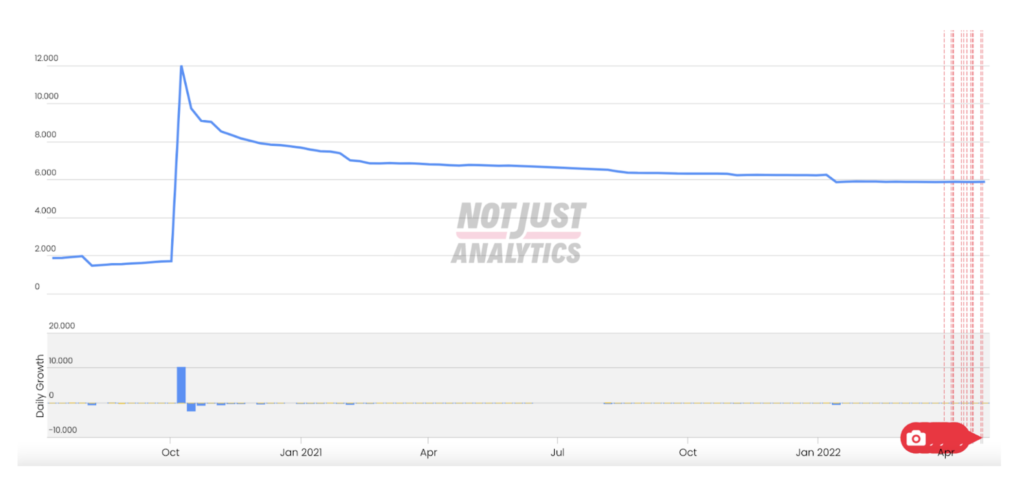May 12, 2022
J
oin me as I reveal the shady business secrets of the online coaching industry and the five red flags to look out for to ensure you’re making the best investments as a small business owner.
If you know me, then you probably already know that the coaching industry makes me mad – and I’m talking mad mad. You might already know that there is a lot of funny business going on out there, if not, then this is blog is perfectly timed.
In today’s world of online business, being as informed as we can be on what’s happening around us couldn’t be more important, especially when it comes to making informed purchasing decisions for our small businesses.
Quite frankly, the whole shadiness of it all makes me angry, annoyed and totally emotional. So I thought, instead of just ranting to my husband or my team about it, I’d turn this information into a blog to help raise awareness. That way, you can make informed decisions and spot those red flags. Now, let’s dive in.
Red flag 1: Coaches buying Instagram followers
Back in 2020, during my first year of starting my Ebb, Flow & Grow journey, I used to follow a sales and marketing coach on Instagram. She had just started her business – around the same time as me – and I would regularly have a nose at her content. I remember thinking “Yeah – she seems super knowledgeable!” Boy, was I wrong.
Due to the fact that I followed her so closely, getting what I thought were these amazing authentic insights and biz secrets, I also immediately noticed when something was up.
In October 2020, her followers had suddenly spiked overnight. I was in complete shock. This was someone that I considered trustworthy. I respected her, without even really knowing her as an individual
I’m fairly certain she bought a follower pack to get over the threshold of 10k – the “swipe up” obsession was a pretty big thing on Instagram at the time. This was a feature where Instagrammers with more than 10k followers were allowed to add a link to their Instagram stories, where their followers could swipe up to exit the app and visit an external website. Luckily, as of 2022, this feature is no longer around and now most accounts can add links to their stories without this restriction.
It was super disappointing to see. And from an audience perspective, it breaks down the barrier of trust that you’ve spent so long building over a period of time. Imagining wiping all that trust away with your audience with just one click of a button? It can be detrimental and in most cases, impossible to recover from.

Data from Not Just Analytics shows a huge dip in her IG growth after buying fake followers in October 2020. The account name will be kept anonymous.
It’s not just your audience that is affected either. Buying fake followers will totally trash your engagement rate because after all, these aren’t real people and Instagram knows this.
“You only want people that are genuinely interested in you and your business to be following you, who genuinely care about what you have to say and want to engage with and buy from you.”
Once you’ve taken that away, all you’re left with is vanity metrics and nothing of much real value. Her following has also been declining and stagnant ever since. She’s now migrated to Facebook Groups as her primary platform and hardly does anything on Instagram – I highly suspect this is the reason why.
So what should you take away from this? Well first, does your coach appear to have a genuine audience who you can see leaving meaningful comments and actively engaging? And are the creators responding back to them?
And the biggest thing: on Instagram especially, remember that it can all very easily be smoke and mirrors, so be sure to do your research before you invest time and money into someone.
“An aesthetically pleasing feed and lots of followers might look good on paper, but that doesn’t mean that person is trustworthy and worth your time and money.”
Red flag 2: You must do X, Y & Z challenges to “blow up” your business
If you follow me on Instagram, then you might have seen me ask you, my audience, what your thoughts were on me doing a 30 day Instagram reel challenge.
I had an overwhelming response to “yes” and I was planning on doing it for the first time in January 2022. But then I paused, collected my thoughts and asked myself the following question: does this feel like me?
The answer was no. Putting extra pressure on myself to churn out a reel every day during January did not feel authentic to me or my brand.
Aside from the fact that doing challenges like this is a huge drain on your time and energy, plus they tend to be very stressful, I’ll let you in on a little secret: they often don’t work. At least not in the way that you want them to. Yes, you might see some results, but not the kind worth meriting that much effort which could be spent elsewhere in your business.
Lots of online business coaches will pitch themselves using methods and strategies that they’ve used to successfully blow up their brand or account. Whilst this may be true for them specifically, what if you’re a product-based biz and they’re a service provider? Their advice may not even be that relevant for your type of business.
So what should you take away from this? Be extra cautious of investing time in gimmicks like these 30-day challenges. They rarely work for people to the same degree as the original person. And if you won’t take my word for it, our good friend Ashleigh Henry did a reels challenge and the results were (unsurprisingly) not very impressive.
Red flag 3: Scripted/cookie-cutter approaches
Would you believe that thousands of coaches are still using cookie-cutter approaches with their clients? It makes me cringe just thinking about it. There is no such thing as a one-size-fits-all approach in online coaching. You and your small business are both wonderful and unique in your own ways, and you need to be treated as such.
You’ll want to find a coach who really sees you and understands you, and is genuinely recommending strategies that will actually make you feel good and aligned with your business.
I’ll often hear people say that they feel icky and uncomfortable when they’re trying something new in marketing and sales and ultimately, aren’t seeing the results they want. This is usually the reason why.
I’m all for a tried and tested template or suggestion on how to do something to make your life easier, but be very careful about going down the route of using certain scripts for selling in your business.
A major thing I’ve also learnt from being in so many Facebook groups, for both small business owners and marketing, is that everyone will have a different answer to a question or problem you have, but many of them could also be pushing their cookie-cutter approaches to try and entice you in.
Whilst it’s amazing to have so many different people from different backgrounds to utilise, it’s important to remember that not every claim someone makes is necessarily true. Be careful and do your fact-checking.
Red flag 4: Corrupt Engagement Strategies in Facebook Groups
I came to a startling realisation in the week before my holiday (it actually prompted this blog post) when I discovered something INCREDIBLY shady going on in a well-known established Facebook group in the entrepreneurial space. Again, I’m not going to call them out directly but I want to raise awareness nonetheless.
A lot of Facebook groups offer an option where you can pay a fee to promote to the group members. It’s usually achieved either by signing up for a program that a coach who runs that group offers or just paying an additional fee. It’s a perk of signing up with them – fair enough. I don’t object to this.
However, what I do object to is the fake engagement on these posts that are being pushed. I’ve been witnessing what I think is an entirely fake engagement strategy taking place to help drive the visibility of certain group members – the whole thing is utterly corrupt.
How do I know this for sure? I’ve seen it play out in real-time. I watched as the post goes live, and immediately lots of people were suddenly commenting asking for the resource or lead magnet being promoted.

A few short hours in – you’ve got hundreds of them, and, as it would appear, hundreds of new email subscribers for your brand. Sounds great right? Only, I dug a little deeper.
The first few members to comment were always direct affiliates of the coach running the group (e.g. family and staff members) who are trying to give the post early-stage momentum by engaging. They’re essentially playing the game with the algorithm.
And it gets worse. Tons of those supposed individuals who commented asking for the resource are brand new to the group and the ONLY time they engage is for this specific purpose. They seem to be a member of the group for one reason.
To me, this is highly suspect. Want to know my hypothesis? The coach is paying for random people to enter the group and perform fake engagement in order to gain their posts higher visibility. It sounds like a mad conspiracy theory but I’m almost certain that I’m right.
After that, a good chunk of genuinely interested people will start commenting, believing that the resource advertised must be the best thing since sliced bread, given that 350 other people have asked for it.
To me, this is horrendous for several key reasons:
- It means that people are building email lists with fake subscribers and wasting their money sending campaigns.
- It means that genuine people are signing up for resources that appear substantially more popular than they are.
- It means that the group is experiencing heightened visibility in the Facebook feed due to the fake engagement.
I’m honestly absolutely horrified and wish I could call it out but I suspect I’ll be sued if I do! Don’t put all your trust into Facebook Groups, especially when you see a post with plentiful comments. Not everything is always as it seems.
Red flag 5: Coaches coaching coaches to be coaches – without any other biz experience
I know, that subheading is a bit of a mouthful to read, but bear with me. The online business world is super easy to get started in. You could set yourself up as a new business coach tomorrow if you wanted to. On the one hand, it’s great progress for the entrepreneurial space, making it so much more accessible to people and I really love that.
However, this has also led to many coaches turning into outright copycats. They will literally just regurgitate what they’ve learnt from their own coach, and essentially just create hundreds of mini cloned coaching businesses. It’s almost like a pyramid scheme.
They’ve never had another business before, they’ve not had a longstanding career, and other than selling the same strategy or package they’ve personally experienced, they don’t really know much else about business.
Now to give you a bit of context as to why you want a coach with experience: I have an entrepreneurial background of over seven years, between Ebb, Flow & Grow and the first business that I owned in my early twenties in publishing.
My parents also owned their own restaurant throughout the latter half of my childhood – I actually grew up in a successful hospitality business which subsequently inspired my degree choice in the events sector.
On top of this, I worked in marketing for almost ten years for both agencies and brands before I launched my second business. Over the last 12 months, I’ve also managed an Airbnb business full-time alongside my husband.
Compare that to a coach who has been coaching for just 6 months, and learned what they know about business from their coach, who did the same thing. Yeah. A pretty big knowledge gap. Not to overly toot my own horn here, but I know who I’d be investing in.
Summary: 5 things you should watch out for
Phew. That was a lot!
Now take a breath, have a stretch and perhaps a cuppa. But before you do, let’s quickly go over the online coaching red flags you need to look out for. You don’t want to be forgetting these.
- Do they have a HUGE following but suspiciously low engagement?
- Do they treat their clients like clones and encourage you to “just do what I do”?
- Do they always lead with messaging around finances, fear and quick fixes?
- Do they have business acumen or a track record to speak of?
- Are they reluctant to/will not share contact information of existing or past clients?
If you’re feeling anxious at all about any of this or fear you might have bought into one of these online coaching fads, don’t panic! Feel free to reach out via Instagram for a chat at @ebbflowandgrow. My DMs are always open to those in need of support. Alternatively, you can send me an email at hello@ebbflowandgrow.com.
To stay up to date on all the latest blogs and Ebb, Flow & Grow updates, be sure to subscribe to my newsletter below and follow me on Instagram at @ebbflowandgrow. You can check out my other blog posts by clicking here. Until then!
There’s some Shady Business happening in Online Coaching

Download 5 Steps to Building your Holistic Marketing Strategy here. We'll also pop you on the mailing list for marketing and brand tips, plus the occasional goodie.
CREATIVE BUSINESS COACHING
back to the top
© 2024 EBB, FLOW & GROw
PRIVACY POLICY
privacy policy
JOB VACANCIES
LET'S CONNECT:
JOURNAL